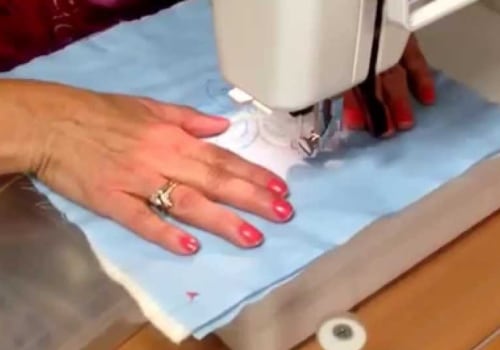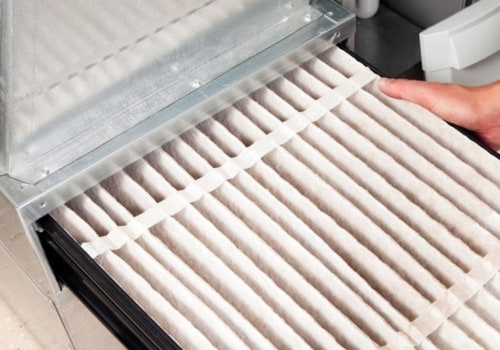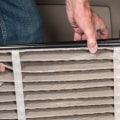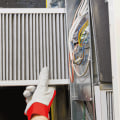Without a new air filter, the furnace will overheat every time it is turned on again. This is known as short cycling. Dirty furnace filters cause the furnace to work harder than necessary due to decreased airflow. The harder your furnace works, the faster its parts will wear out and need repairs.
If the air cleaner is not serviced often enough, it will eventually become clogged to the point where air cannot pass through it. When the furnace is running, the lack of air flow will trap heat in the system. As the temperature inside the system continues to rise, the limit switch will turn the furnace on and off to prevent it from overheating. This will temporarily mitigate the problem, but will not resolve the root of the problem.
If the air filter is clogged and can't trap contaminants like it did before, those things can go back to the air that everyone in your home breathes. Immediate problems may include headaches, itchy eyes or throat, and dizziness. If air filters are not changed and problems persist, long-term effects could be respiratory disease, heart disease, or cancer. Failure to change the furnace filter can be dangerous.
Furnaces are very important, but if not properly maintained they can become dangerous, and this can be the case if the filter inside is old. Keeping your furnace filter clean can improve furnace efficiency and even lower utility bills. It can also prevent operational problems, which can cause fires or other serious issues. A clean filter can better filter the air and prevent dirt, allergens or dust from circulating in the home.
Ensuring that the furnace filter is changed regularly can prevent danger and exacerbation of health problems. A dirty filter reduces airflow to the HVAC system and makes it work harder, using more energy which costs you more money. Probably the biggest danger of not changing your furnace's air conditioning filter is that it can damage your HVAC system and reduce its life expectancy. In my opinion, as a licensed home inspector, if you don't regularly change the filter, you can reduce the life expectancy of your air conditioner from 6 to 12 years. Getting the most value out of your home can be as easy as changing air filters.
Homeowners who ignore filters in their heating and air conditioning systems risk increasing energy costs, damaging expensive equipment, and decreasing indoor air quality and personal health. You may wonder how important the air filter can really be if you've gone so long without changing it and the system apparently works well. Of course, the goal of this post is to make it clear that you would save yourself a little frustration if you changed your air filter every few months. If I raise my hand to several ventilation grilles and feel weak or have a total lack of air flow, the first thing that comes to mind is the furnace filter. Using an air filter with a MERV rating higher than recommended by the manufacturer of your furnace or air conditioner may impair its performance. Vacation homes or vacant homes that don't have much use can usually wait to change filters every 9-12 months. Some people have reported that rooms with poor airflow can even change the color of walls and furniture. Any overheated appliance risks causing a fire or causing major problems, but furnaces are especially prone to some of these problems. For help with changing a furnace filter, there are professionals for gas central heating systems in Minneapolis and other areas.










